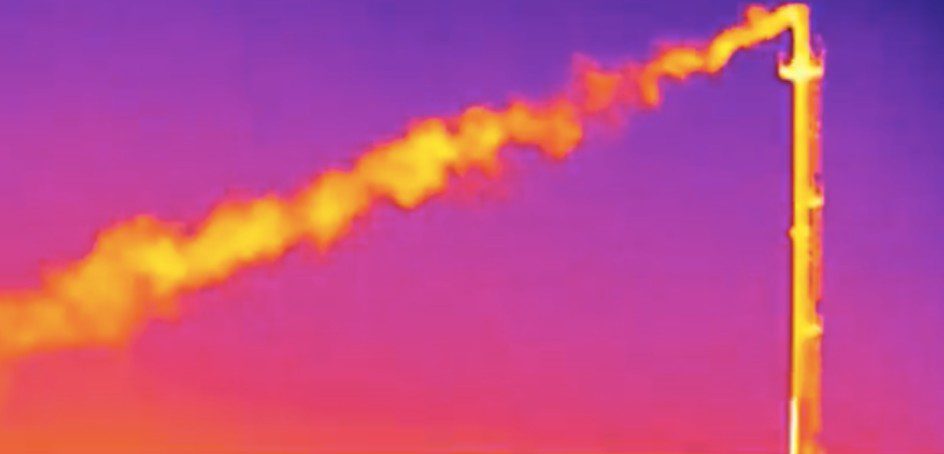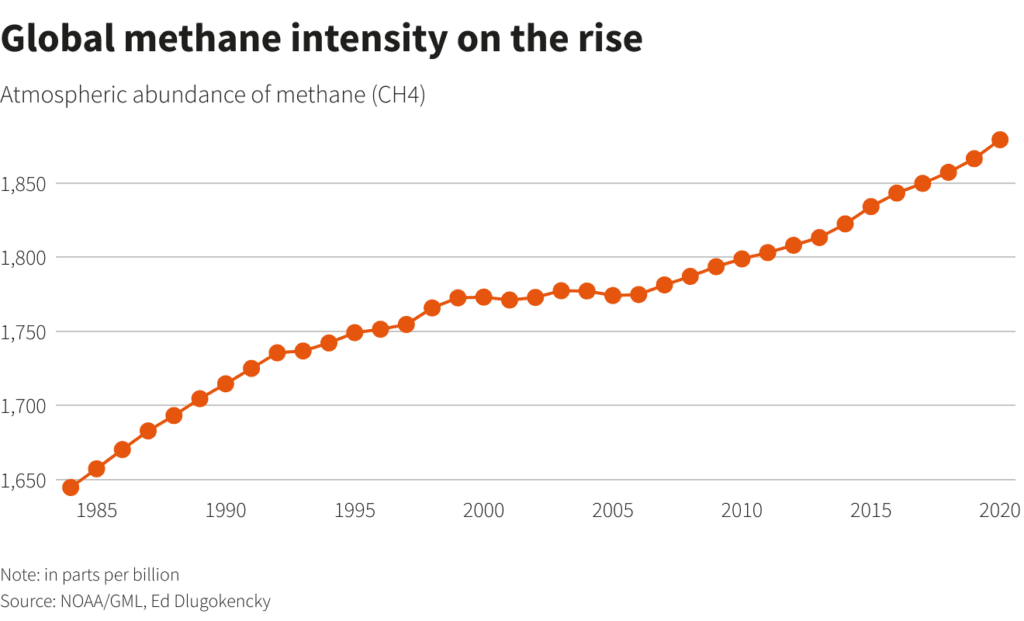Infrared Cameras exposes Europe’s Methane Leak


Atmospheric methane constitutes the second-largest source of global warming after carbon dioxide. However, European Union law doesn’t require companies to gather data on leaks of this colourless and odourless gas.
Video footage of the deadly methane gas coming out of natural gas infrastructure across the European Union because of leaks and venting exposes a deadly reality of the gas industry.
Using a 100,000 euro ($119,000) infrared camera, the non-profit Clean Air Task Force (CATF) is travelling around Europe, visually capturing methane leaks from oil and gas facilities. The campaign has so far captured 271 incidents at 123 oil and gas sites across Europe, including Austria, Germany, Italy and Poland.
Methane, the biggest cause of climate change after carbon dioxide (CO2), is the main component of natural gas and over 80 times more potent than CO2 in its first 20 years in the air.
“Once you see it, you can’t unsee it,” said CATF’s James Turitto, who filmed the emissions. “If we have any hope of achieving only a 1.5 Celsius rise in average global temperatures, we must stop these leaks.”
Turitto said over 90% of the sites he visited in the Czech Republic, Hungary, Italy, Poland and Romania were emitting methane while his hit rate in Germany and Austria was lower.

US and EU: Partners in crime
The EU is not alone. U.S. President Joe Biden’s administration plans to propose new rules this year to reduce methane emissions.
In 2019 the New York Times used an infrared camera to identify large methane leaks at U.S. oil and gas sites. Two New York Times journalists detected this from a tiny plane, crammed with scientific equipment, circling above the oil and gas sites that dot the Permian, an oil field bigger than Kansas. In just a few hours, the plane’s instruments identified six sites with unusually high methane emissions.
There is this urban legend that the U.S. natural gas system is disproportionately leaky compared to the rest of the world
An expert with nearly two decades of experience at major oil companies who advises U.S. firms and authorities on methane emissions told Reuters that the CATF footage showed the EU had a problem.
“There is this urban legend that the U.S. natural gas system is disproportionately leaky compared to the rest of the world,” said the expert, who declined to be named. “When I look at these videos, they don’t seem very different than the United States.”
Murray Worthy, Gas Campaign Leader, at Global Witness said:
“What this vital work from the Clean Air Task Force shows is that methane leaks are not simply anomalies from an otherwise well-run industry. They are an inevitable feature of an industry that is based on digging up and transporting climate-wrecking gases around the world.”
“The oil and gas industry spends millions trying to convince politicians and populations that they are both necessary and responsible. What should now be blindingly obvious is that is anything but true. This is an industry that cannot be trusted.”
“We know just how devastating methane emissions are, as do the gas industry. The single most effective way of stopping these methane leaks is also incredibly simple – phase out the use of climate-wrecking fossil gas.”
Methane is a greenhouse gas that is, in the short term, 86 times more potent than carbon dioxide and has also driven more than a quarter of global warming to date. The European Union is the world’s largest importer of fossil gas and, despite its own climate commitments, is therefore central to this catastrophic problem.
Why there are no actions against these companies?
Let’s see, it’s easy to blame India and China for global warming but difficult to question one’s own industrialization and deadly emissions.
Evidently, Europe’s 21st-century climate battle is a lie. More so because the developed world is unwilling to take the responsibility of messing with the climate in the past and at present. In fact, the reality is they never really stopped polluting.
Written by Prakriti S
